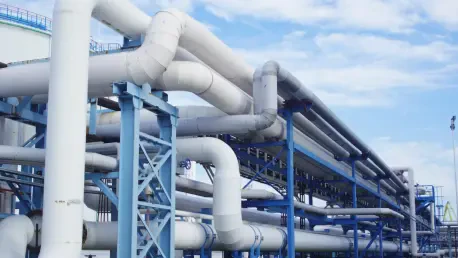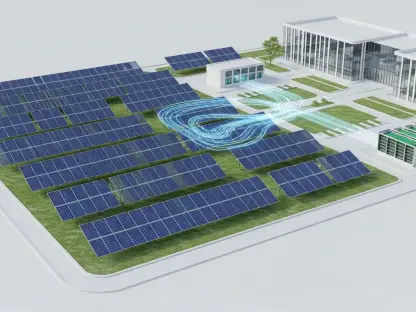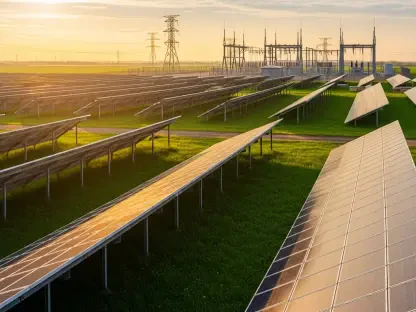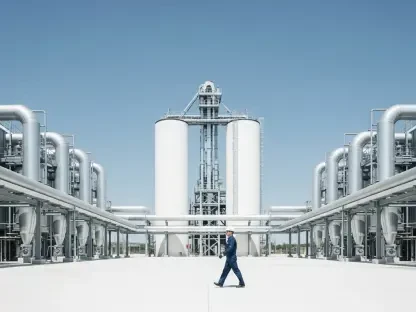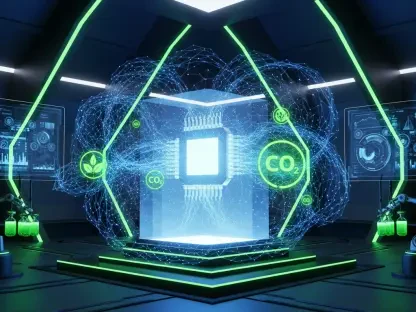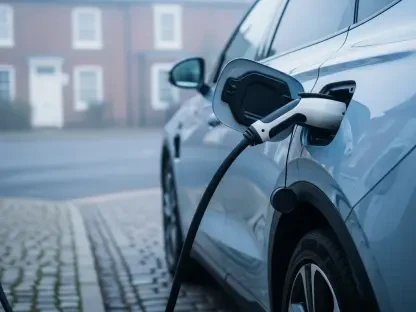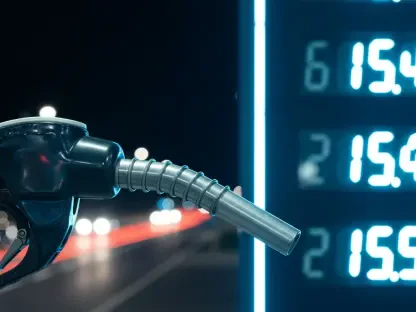In a geopolitical landscape fraught with tension, Slovakia has emerged as a notable outlier within the European Union, actively pursuing closer ties with Russia at a time when the bloc is steadfastly working to reduce dependency on Moscow’s energy resources and impose sanctions due to ongoing conflicts. Under the leadership of Prime Minister Robert Fico, the country is navigating a complex path that prioritizes national economic interests over collective EU strategies. This divergence has sparked debates about unity within the union, as Slovakia’s recent actions—ranging from high-level diplomatic engagements to energy agreements—challenge the broader consensus on isolating Russia economically. The implications of this stance are profound, potentially reshaping regional dynamics and influencing how other member states approach their own policies. As Slovakia forges ahead with its controversial direction, the balance between pragmatic economic decisions and adherence to EU solidarity remains a critical point of contention, setting the stage for a deeper exploration of this unfolding narrative.
Energy Dependencies and Economic Priorities
Slovakia’s push to strengthen economic relations with Russia is largely driven by its reliance on Russian gas, a resource that remains crucial for the nation’s energy security despite EU efforts to phase out such dependencies by 2027. Prime Minister Fico has openly expressed gratitude for the consistent supply of gas through the TurkStream pipeline, which is currently the only active route delivering Russian gas to Europe following disruptions to other major pipelines. Data reveals that Slovakia has imported around 1.7 billion cubic meters of gas via Hungary, connected to TurkStream, so far this year, with plans to boost cross-border capacity from 3.5 billion to 4.4 billion cubic meters. This focus on maintaining and even expanding energy ties with Moscow underscores a pragmatic approach, where the immediate need for affordable energy outweighs the ideological push for diversification. The potential involvement of Russian companies in a new nuclear power plant project further illustrates how economic considerations are shaping Slovakia’s foreign policy, even as alternative bids from Western firms are under review.
The economic rationale behind Slovakia’s stance becomes clearer when considering the potential cost implications of shifting to alternative energy sources, a concern shared by other EU nations like Hungary. Transitioning away from Russian gas could lead to significant price hikes for Slovak consumers and industries, a risk that the government appears unwilling to take in the current economic climate. Fico’s administration has framed this as a matter of practicality rather than defiance, arguing that energy security and affordability must take precedence over punitive measures aimed at Moscow. This perspective has led to tangible policy shifts, such as the resumption of issuing visas to Russian citizens, reversing a suspension that was implemented in response to earlier geopolitical tensions. Such moves signal a broader intent to normalize bilateral relations, prioritizing economic stability over alignment with the EU’s collective strategy. This balancing act continues to fuel discussions about the viability of a unified European response to Russia’s actions on the global stage.
Diplomatic Engagements and Regional Tensions
On the diplomatic front, Slovakia’s recent interactions with Russian leadership highlight a deliberate effort to restore what Fico has described as “standard” economic cooperation. A notable meeting between Fico and Russian President Vladimir Putin during China’s World War II anniversary celebrations in Beijing marked a significant step in this direction. This encounter, held earlier this month, provided a platform for reinforcing ties, with Fico emphasizing the reliability of gas supplies as a cornerstone of bilateral relations. However, this overture to Moscow stands in stark contrast to the EU’s overarching policy of economic isolation, creating friction within the union. Slovakia’s actions are seen by some as undermining the collective effort to penalize Russia for its geopolitical maneuvers, raising questions about the cohesion of the EU’s foreign policy framework. The divergence in approach reveals a deeper rift, where national interests are increasingly pitted against multilateral agreements.
Beyond its engagement with Russia, Slovakia must also navigate its relationships with neighboring countries, particularly Ukraine, amidst ongoing regional conflicts. An upcoming meeting between Fico and Ukrainian President Volodymyr Zelenskiy, scheduled for later this week in Uzhhorod, Ukraine, aims to address recent disruptions to Russian oil flows through the Druzhba pipeline, which briefly impacted supplies to both Slovakia and Hungary. Originally planned to take place in eastern Slovakia, this dialogue underscores the intricate interplay of energy dependencies and security concerns in the region. While Fico’s government seeks to maintain economic links with Moscow, it cannot ignore the implications of Ukraine’s position and the broader conflict that continues to shape energy transit routes. This meeting represents an opportunity to balance competing priorities, addressing immediate pipeline issues while acknowledging the sensitivities of a neighboring state directly affected by Russian actions. The outcome could influence how Slovakia positions itself in future regional negotiations.
Navigating the Path Forward
Reflecting on Slovakia’s bold moves to deepen ties with Russia, it becomes evident that the nation has trodden a contentious path over recent months, prioritizing economic pragmatism over EU solidarity. The decisions made, from expanding gas imports to engaging directly with Russian leadership, highlight a willingness to diverge from the bloc’s unified stance, even at the risk of straining intra-European relations. These actions, coupled with efforts to resume normalcy through visa policies, paint a picture of a government focused on immediate national benefits amidst a complex geopolitical backdrop.
Looking ahead, Slovakia faces the challenge of reconciling its economic needs with the expectations of its EU partners. A potential next step could involve advocating for a more nuanced EU policy that accommodates the diverse energy realities of member states, possibly through dialogue and compromise on sanction frameworks. Additionally, fostering transparent communication with Ukraine during upcoming discussions might mitigate regional tensions, ensuring that energy security does not come at the expense of neighborly stability. As the situation evolves, monitoring how Slovakia balances these competing interests will be crucial, offering insights into whether pragmatic bilateral ties can coexist with broader multilateral commitments.
